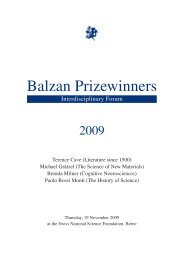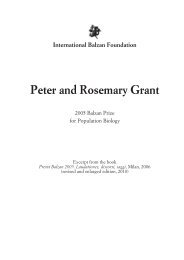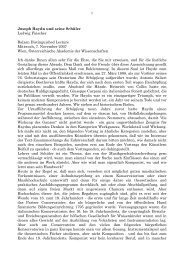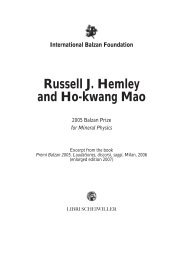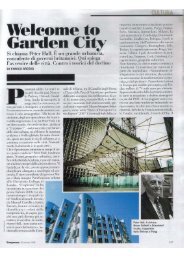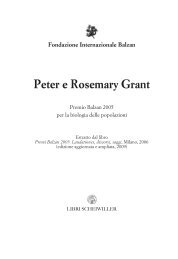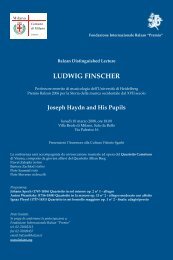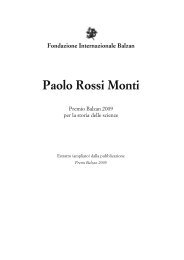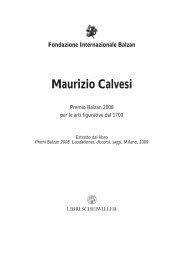International Balzan Foundation Luigi Luca Cavalli
International Balzan Foundation Luigi Luca Cavalli
International Balzan Foundation Luigi Luca Cavalli
Create successful ePaper yourself
Turn your PDF publications into a flip-book with our unique Google optimized e-Paper software.
<strong>Luigi</strong> <strong>Luca</strong> <strong>Cavalli</strong>-Sforza<br />
would not ordinarily reproduce. With very few exceptions, it simply removes<br />
them before they are born, usually avoiding extreme pains to them and to their<br />
relatives. It therefore does not, in practice, change the genetic incidence of the<br />
disease, but kills it before it appears, in the unborn.<br />
Multidisciplinarity and historical studies<br />
The research of human origins has made it useful or necessary to study parallel<br />
events and phenomena in a number of related disciplines, ranging from genetics<br />
to paleoanthropology, archaeology, ecology, history, demography, sociology, cultural<br />
and physical anthropology, linguistics, toponomastics and anthroponymy,<br />
and this list will probably increase in the future. This has been made possible by<br />
many collaborators whom I have tried to thank in my acceptance speech. There<br />
are definite advantages in this multidisciplinarity. A major one is the intellectual<br />
pleasure of finding so many similarities between disparate fields of study, some<br />
of which belong traditionally to the two opposite sides of culture: science and<br />
the humanities. The unity of scientific method comes out very clearly from such<br />
an exercise. It is also clear that many basic paradigms, especially mathematical<br />
ones, are extremely useful in many different disciplines, including both sciences<br />
and humanities, and are sufficiently few and simple that they can be easily exported<br />
from one field to the other. The book The Two Cultures by C.P. Snow already<br />
gave reasons for not maintaining the gap existing between the two cultures,<br />
but little has happened since it was published.<br />
There is also a specific advantage in multidisciplinarity when studying evolution.<br />
Evolution, like all history, suffers from a major handicap: one cannot use<br />
the experimental method, because one cannot hope to replicate history with the<br />
aim of verifying the causes. For this reason, some philosophers of science have<br />
denied that the study of evolution is a science. But historical events have rarely<br />
had restricted meaning or influence. One finds again and again the same consequences<br />
of the same events in profoundly different things. To give an example,<br />
the history of the settlement of geographical areas by populations expanding demographically<br />
has often similar consequences in genetics and in linguistics, so<br />
much so that their evolutionary trees are similar, in spite of the profound difference<br />
of the physical substrate evolving in biology and language. There is much<br />
fear among some scientists of the possible superficiality of conclusions drawn on<br />
the basis of analogies between different sciences. But one of the great scientists,<br />
Darwin, noted, in chapter 14 of the Origin of Species (second edition), that if we<br />
23



